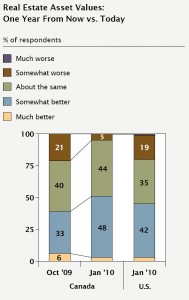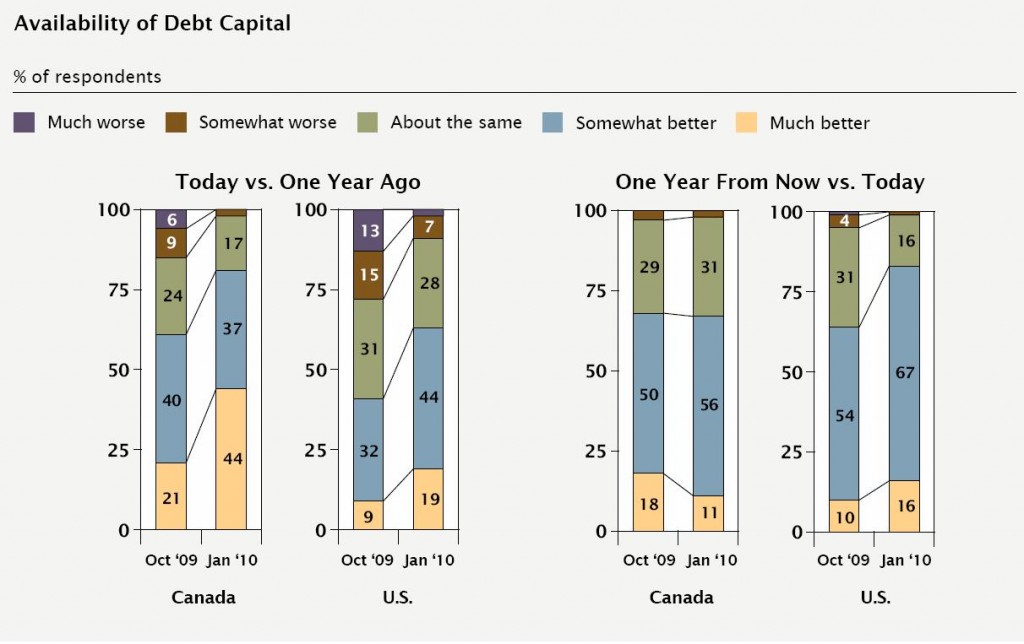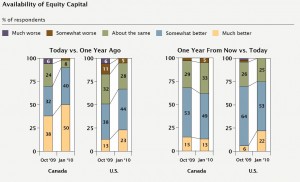The results of a comprehensive survey that measured the confidence of senior executives in the Canadian commercial real estate industry were released today by the Real Property Association of Canada (REALpac) and FPL Advisory Group (FPL). The aim of this survey was to measure the pulse of the Canadian commercial real estate industry over time.
The REALpac/FPL Canadian Real Estate Sentiment Index for Q1/2010 came in at 76 on an overall basis, up from 68 last quarter.
On a sentiment basis, overall expectations for 2010 were modest but upbeat. Those surveyed indicated that they were “cautiously optimistic,” with 87% of respondents expecting conditions to improve in the next year, compared to 63% in last quarter’s survey.
Many of the respondents also expect trading volume and pricing to solidify. Overall, respondents were roughly split between expecting no change and modest increases in pricing.
The easy availability of capital was one of the chief reasons for this price stability. There remained an imbalance between buyers and sellers with buyers outnumbering the sellers. The survey also picked up on a sense that the bid-ask spread was narrowing.
Expectations for the coming year include increased volume and pricing stability.
In addition, an overwhelming majority of survey participants 81% and 90%, respectively) see debt and equity as more available than it was a year ago. However, statistics for equity capital availability going forward have started to slow down, with an increasing (though small) share of respondents expecting equity availability to be worse or about the same, compared to the prior quarter.
Interviewees were clear in expressing that they felt they had adequate acccess to capital if needed, particularly those organizations of size. One respondent in partiualr, commented “We just completed a huge financing, so we’re feeling pretty good about debt availability.” According to another, “If you’re not too aggressive, you can pretty much get the debt you need.”
While access to capital may not be a problem, there is a dearth of product to purchase. Interviewees said: “Little of size has traded. We need to see some $80-$100M assets trade to see that people can really get deals done.”
There also exists the possibility that capital will end up leaving the country in search of deals.
In conclusion, while most respondents expect a mild recovery that will pick up steam going into 2011 and 2012, pockets of weakness still exist. Large transactions haven’t resumed, and overall transaction volume is still light. The kind of “great deals” on properties that can motivate more aggressive entry into the space don’t seem to be appearing. Moreover, the real estate market in the United States is still well behind the Canadian market, potentially weakening Canadian economic fundamentals, lengthening the time to recovery, and siphoning off capital that could be deployed domestically.











